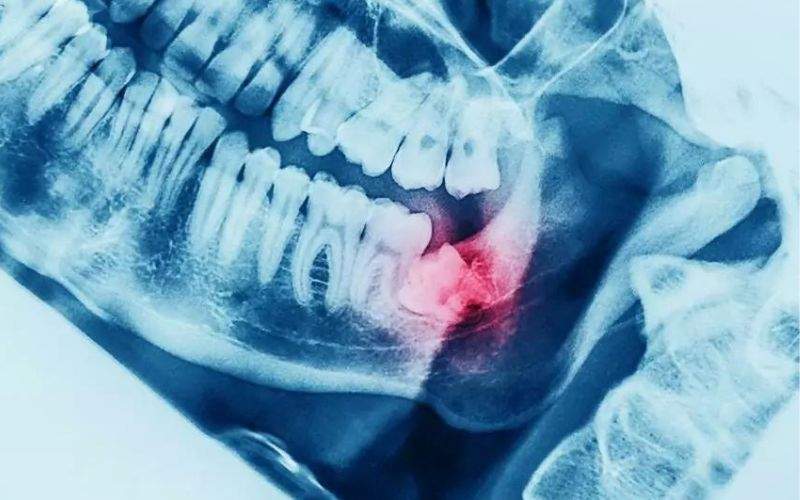Wisdom teeth removal, also known as third molar extraction, is a common dental procedure performed to alleviate pain, prevent oral complications, and preserve overall oral health. After undergoing wisdom teeth removal, maintaining proper oral hygiene is crucial to promote healing, prevent infection, and ensure a smooth recovery process. This comprehensive guide provides essential tips and recommendations on how to keep your teeth clean and maintain oral health following wisdom teeth extraction.
Immediate Post-Operative Care
1. Follow Dentist’s Instructions
After wisdom teeth removal, carefully follow your dentist or oral surgeon’s post-operative instructions. These may include guidelines for managing pain and swelling, dietary restrictions, and specific instructions for oral hygiene practices.
2. Managing Bleeding
Some bleeding is normal after extraction. Bite down gently on gauze pads provided by your dentist to control bleeding.
Change the gauze pads as instructed to promote clot formation and minimize bleeding.
SEE ALSO: Are Top Or Bottom Wisdom Teeth More Painful
3. Pain Management
Over-the-counter pain relievers such as ibuprofen or acetaminophen can help alleviate discomfort. Follow dosage instructions provided by your dentist. Avoid aspirin as it may increase bleeding.
Oral Hygiene Practices After Wisdom Teeth Removal
1. Gentle Brushing
Begin gentle brushing of your teeth the day after surgery, focusing on the teeth surfaces away from the extraction sites. Use a soft-bristled toothbrush and gentle circular motions to clean teeth and along the gum line.
2. Rinse with Salt Water
Rinsing with warm salt water helps cleanse the mouth, reduce swelling, and promote healing. Mix a teaspoon of salt in a cup of warm water and rinse gently after meals or as recommended by your dentist.
3. Avoid Spit and Suction
Avoid spitting forcefully or using straws during the initial days after surgery, as this can dislodge blood clots and hinder healing. Instead, allow saliva to passively drain from your mouth.
4. Use of Medicated Mouthwash
Your dentist may prescribe an antimicrobial mouthwash to reduce bacteria and minimize infection risk. Use as directed, typically starting a few days after surgery or as recommended.
Diet Recommendations
1. Soft Foods
Stick to a soft diet during the initial days following wisdom teeth removal. Opt for foods such as yogurt, smoothies, mashed potatoes, soups, and scrambled eggs that require minimal chewing.
2. Avoid Hard, Chewy, or Spicy Foods
Steer clear of crunchy snacks, hard candies, nuts, and spicy foods that can irritate extraction sites or become lodged in sockets, potentially causing infection.
3. Stay Hydrated
Drink plenty of water to stay hydrated and aid in the healing process.
Avoid sugary beverages and carbonated drinks that can irritate sensitive gums or extraction sites.
Long-Term Oral Care Practices
1. Resume Normal Brushing and Flossing
Gradually resume normal brushing and flossing once your dentist gives you the green light, typically after the initial healing phase. Be gentle around extraction sites to avoid disrupting healing tissues.
2. Regular Dental Check-Ups
Schedule follow-up appointments with your dentist for post-operative evaluations and removal of any remaining sutures.
Routine dental check-ups are essential for monitoring healing progress and addressing any concerns promptly.
3. Addressing Complications
Contact your dentist if you experience persistent bleeding, severe pain, excessive swelling, or signs of infection such as fever or foul-smelling discharge. Early intervention can prevent complications and promote optimal healing.
Common Questions And Concerns
1. Can I Brush Near Extraction Sites?
Yes, but be gentle and avoid directly brushing over the extraction sites for the first few days to allow proper healing. Use a soft-bristled toothbrush and rinse gently with salt water after brushing.
2. How Long Does It Take to Heal Completely?
Healing times vary depending on individual factors and the complexity of the extraction. Most people experience significant improvement within the first week, with complete healing typically occurring within a few weeks to a month.
3. When Can I Resume Normal Activities?
Resume normal activities gradually as you feel comfortable. Avoid strenuous exercise and activities that may increase blood flow to the head and affect healing during the initial recovery period.
Conclusion
In conclusion, maintaining proper oral hygiene and following recommended post-operative care instructions are essential for promoting healing and preventing complications after wisdom teeth removal. By adopting gentle oral hygiene practices, adhering to dietary recommendations, and seeking timely dental care, you can ensure a smooth recovery process and preserve long-term oral health. Consult your dentist for personalized advice and guidance based on your specific needs and recovery progress.

